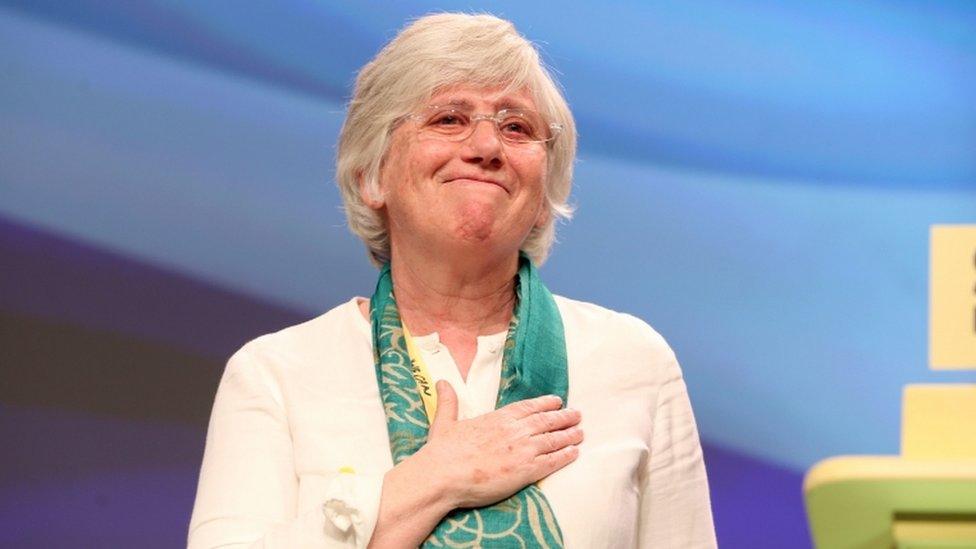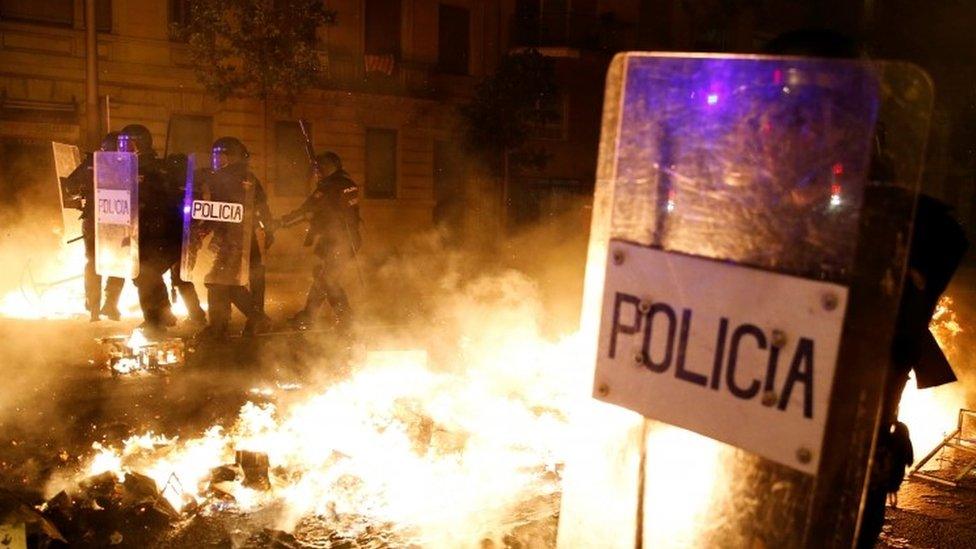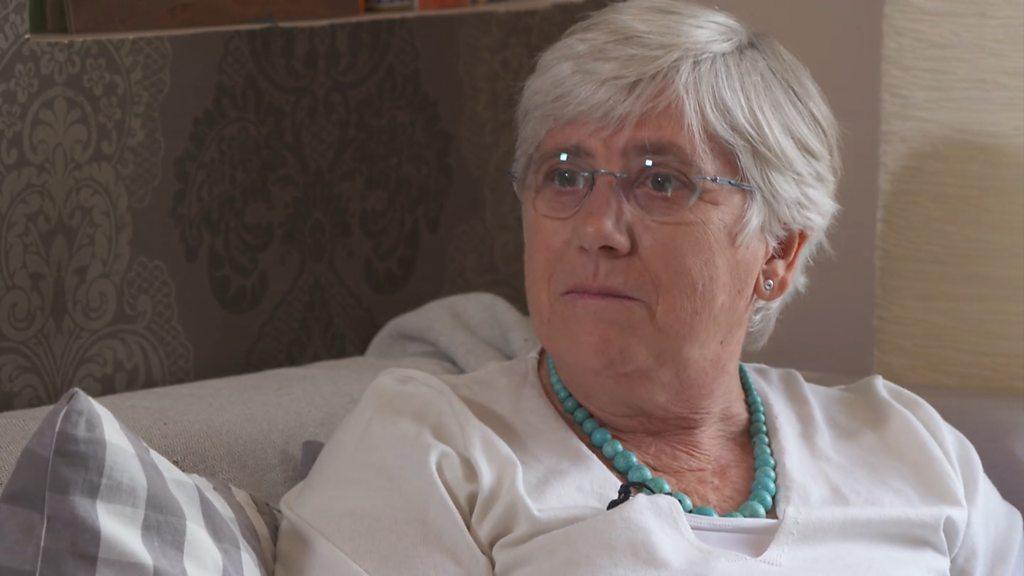Clara Ponsati arrest case is delayed
- Published

Prof Ponsati was given a standing ovation after addressing the SNP conference in Aberdeen last year
Legal action over a St Andrews University professor who is wanted in Spain over her role in the Catalonian independence movement has been delayed.
Clara Ponsatí, 62, is charged with sedition. She denies all wrongdoing and said she would resist extradition.
She was expected to report to police in Edinburgh on Thursday where she would be detained and arrested.
However her lawyer Aamer Anwar said she would not attend because of "glaring contradictions" in the arrest warrant.
Mr Anwar said the warrant was translated by a senior judge, Pablo Llarena, and the UK authorities are now seeking clarifications on the 59-page document.
'Rambling' warrant
He added that Prof Ponsatí would instead hand herself in on 14 November at 11:00, pending any updates.
He continued: "There appears to be glaring contradictions contained in a 'rambling' warrant stretching to some 59 pages, which jumps from 'rebellion' to 'sedition', whilst Clara Ponsati is accused of sedition she is only briefly mentioned on two pages, with no clarity as to her role.
"We note the warrant begins with the activities of the 'independence' movement in December 2012, however Clara Ponsati only returned to become education minister on July 14th 2017.
"The warrant has now been returned to Spain seeking clarification, which means Prof Clara Ponsati will not be appearing at the Edinburgh police office on Thursday 7th November and the court hearing is cancelled."
Clara Ponsati: 'I feel outrage and injustice'
It was confirmed the latest European warrant was issued on Tuesday after a previous warrant was withdrawn last summer.
Prof Ponsatí, who was education minister in the Catalan government, again faces being sent to Spain to stand trial.
The move comes after nine Catalan leaders were convicted of sedition over their role in an unsanctioned referendum on independence in 2017.
Protests erupted in Barcelona last month after they were sentenced to between nine and 13 years in prison by Spain's Supreme Court.

Riot police in Barcelona tried to disperse protesters who set up burning barricades last month
Prosecutors argued that the unilateral declaration of independence was an attack on the Spanish state and accused some of those involved of a serious act of rebellion.
They also said separatist leaders had misused public funds while organising the 2017 referendum.
Speaking to BBC Political Correspondent Niall O'Gallagher, Prof Ponsati said: "I feel a very intense feeling of outrage and injustice.
"A guilty verdict on the Catalan leaders is a guilty verdict on the Catalan people that went to the polls on the referendum day. So everyone will feel the verdict in their own souls."
Mr Anwar added: "The shambolic 'arrogant' attempts at extradition by Spain should be a source of deep embarrassment to them. This is now Spain's third attempt to extradite Clara and they stand accused of abusing the European Arrest Warrant process.
"We are instructed to robustly defend Clara in what she claims to be a 'judicially motivated act of vengeance' against the Catalan politicians."
- Published5 November 2019

- Published5 November 2019
